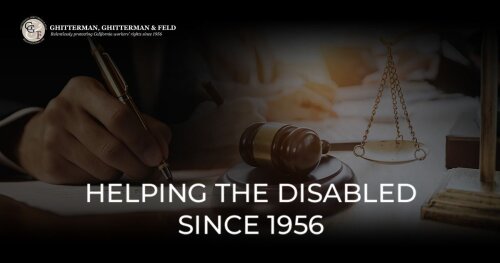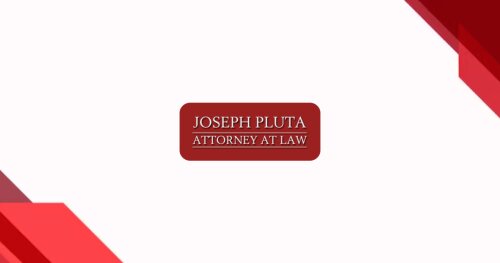Best Car Accident Lawyers in Vermont
Share your needs with us, get contacted by law firms.
Free. Takes 2 min.
Or refine your search by selecting a city:
List of the best lawyers in Vermont, United States
About Car Accident Law in Vermont, United States
Car accidents are an unfortunate reality on Vermont's roads, with consequences that may involve property damage, personal injury, and even fatalities. Vermont car accident law is designed to protect drivers, passengers, and pedestrians by outlining how fault is determined, how victims can pursue compensation, and what responsibilities drivers have after a collision. Car accident claims in Vermont might involve negotiating with insurance companies, seeking medical treatment, and understanding your legal rights and remedies under state law.
Why You May Need a Lawyer
Following a car accident in Vermont, many people find themselves facing complex legal and financial situations. You may need a lawyer if:
- You suffered serious injuries or long-term disabilities.
- You are experiencing lost income due to time away from work.
- The fault for the accident is disputed or unclear.
- The insurance company offers an inadequate settlement or denies your claim.
- Multiple parties or vehicles are involved in the accident.
- You require help collecting evidence, including medical documentation or statements from witnesses.
- You are unfamiliar with Vermont’s car accident laws and procedures.
- There are wrongful death elements involved.
- You face claims or lawsuits filed against you by others involved in the accident.
Local Laws Overview
There are several key aspects of Vermont law that pertain to car accidents:
- Fault-Based System: Vermont follows an "at fault" or "tort" system for car accidents. This means the driver who caused the accident is generally responsible for paying the damages.
- Comparative Negligence: Vermont uses a modified comparative negligence rule. If you are found less than 50 percent at fault, you can recover damages, but the amount will be reduced by your percentage of fault. If you are 50 percent or more at fault, you cannot recover damages from other parties.
- Mandatory Insurance: Vermont requires all drivers to carry liability insurance with minimum limits for bodily injury and property damage.
- Statute of Limitations: For most personal injury or property damage claims resulting from a car accident, you have three years from the date of the accident to file a lawsuit.
- Accident Reporting: Vermont law requires you to report any accident resulting in injury, death, or property damage exceeding $3,000 to law enforcement. You must also exchange information with the other driver(s).
- PIP/No-Fault Coverage: Vermont is not a no-fault state, so drivers generally claim compensation from the at-fault party's insurance rather than their own, unless they have additional coverage.
Frequently Asked Questions
What should I do immediately after a car accident in Vermont?
Ensure everyone’s safety, call emergency services if needed, report the accident to law enforcement if there are injuries or significant property damage, exchange information with the other driver(s), and document the scene with photos and witness contacts.
Do I need to call the police after every accident?
Vermont law requires you to report accidents involving injury, death, or property damage over $3,000. It is generally a good practice to call the police for documentation purposes.
Who determines who is at fault in an accident?
Fault is often determined by police reports, insurance companies, and in some cases, courts. Evidence such as physical damage, witness statements, and traffic laws are used to establish fault.
Can I recover damages if I was partially at fault?
Yes, under Vermont's modified comparative negligence rule, you can recover damages if you are found to be less than 50 percent at fault. Your compensation will be reduced by your percentage of fault.
How long do I have to file a lawsuit after a car accident?
In Vermont, you generally have three years from the date of the accident to file a lawsuit for personal injury or property damage.
What types of damages can I recover?
You may recover damages for medical bills, lost wages, property damage, pain and suffering, and in some cases, punitive damages.
What if the other driver does not have insurance?
You may file a claim with your own uninsured or underinsured motorist coverage if the other driver lacks adequate insurance.
Should I accept an insurance settlement?
It is important to review any settlement offer carefully. Consult an attorney before accepting if you are unsure whether the offer covers all your losses and future expenses.
Can I handle my claim without a lawyer?
While it is possible to handle small claims independently, having a lawyer is advisable if injuries are serious, liability is disputed, or the insurance company is uncooperative.
Will my insurance rates go up after an accident?
Insurance rates may increase after an at-fault accident. Policy terms vary, so discuss specifics with your insurance provider.
Additional Resources
If you need more information or assistance, consider these resources:
- Vermont Department of Motor Vehicles (DMV): Provides accident reporting forms and insurance guidelines.
- Vermont Judiciary: Contains resources on filing small claims and civil lawsuits related to car accidents.
- Vermont Bar Association: Offers lawyer referral services and guidance on legal rights.
- VT Office of the Attorney General, Consumer Assistance Program: Supports consumers in disputes involving insurance claims.
- Local law enforcement agencies: For accessing police reports or filing accident documentation.
- Area hospitals and medical providers: For obtaining necessary documentation of your injuries.
Next Steps
If you have been involved in a car accident in Vermont and need legal assistance, follow these steps:
- Gather all relevant documentation, including police reports, insurance details, medical records, and photos from the accident scene.
- Report the accident to your insurance provider and follow their instructions.
- Consider consulting with a qualified Vermont car accident lawyer, especially if you have sustained injuries or are unsure of your legal options.
- Do not sign or accept any settlement offers without reviewing them carefully or speaking with an attorney.
- Monitor deadlines, such as the statute of limitations, to ensure you protect your right to seek compensation.
- Use available resources and seek support from local agencies if you need further guidance navigating the claims process.
Lawzana helps you find the best lawyers and law firms in Vermont through a curated and pre-screened list of qualified legal professionals. Our platform offers rankings and detailed profiles of attorneys and law firms, allowing you to compare based on practice areas, including Car Accident, experience, and client feedback.
Each profile includes a description of the firm's areas of practice, client reviews, team members and partners, year of establishment, spoken languages, office locations, contact information, social media presence, and any published articles or resources. Most firms on our platform speak English and are experienced in both local and international legal matters.
Get a quote from top-rated law firms in Vermont, United States — quickly, securely, and without unnecessary hassle.
Disclaimer:
The information provided on this page is for general informational purposes only and does not constitute legal advice. While we strive to ensure the accuracy and relevance of the content, legal information may change over time, and interpretations of the law can vary. You should always consult with a qualified legal professional for advice specific to your situation.
We disclaim all liability for actions taken or not taken based on the content of this page. If you believe any information is incorrect or outdated, please contact us, and we will review and update it where appropriate.
Browse car accident law firms by city in Vermont
Refine your search by selecting a city.










